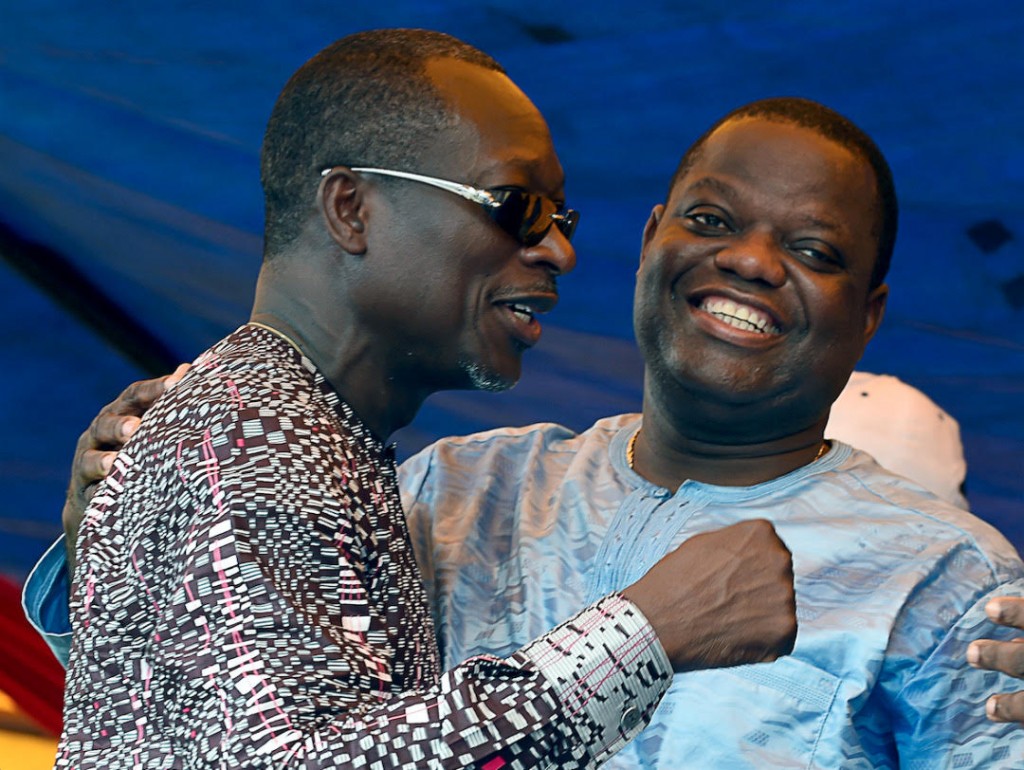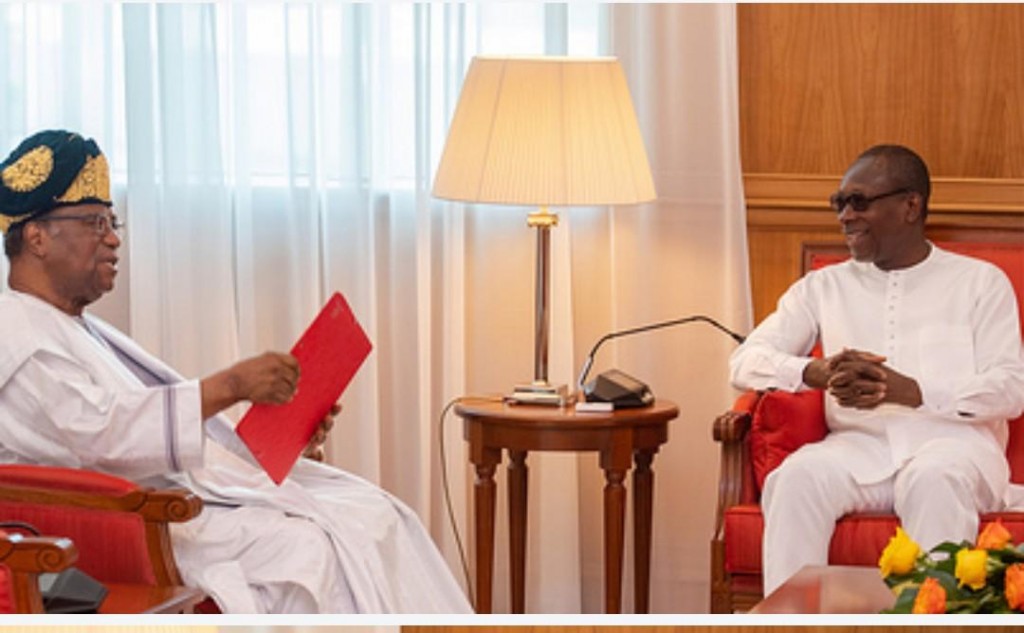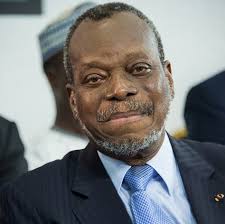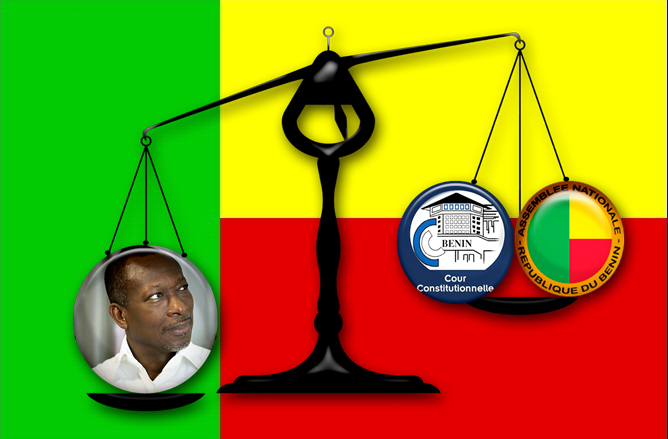President Talon throws Benin’s democracy under the bus
BY SOUMANOU SALIFOU
Since Patrice Talon became president of Benin on 6 April 2016, he has meticulously managed to undo, brick by brick, the democratic architecture of a West African nation once hailed as the “beacon of democracy in Africa.” His highly-controversial laws that have barred all the opposition parties from taking part in the upcoming legislative elections are the culmination of a long process that is well explained by the man’s history.
Patrice Talon, who is known as “the king of cotton” because he built his huge fortune with earnings from this industry that he has dominated for decades, had to flee to France in 2012 to seek asylum there amid accusations of embezzlement of government funds. (His one-time staunch political ally Candide Azannaï said in a video posted on WhatsApp how Talon was driven out of the country in a car trunk to catch a flight in a neighboring country to avoid arrest by then-President Yayi Boni.) Talon, reportedly the wealthiest man in Benin, with a fortune estimated at $400 million by Forbes Magazine, was the main financier of Yayi’s two runs for the presidency, and both men obviously had a strong relationship. But, while in  France, the current president was accused of a plot to poison Yayi, among other things. Angelo Houssou, the judge who tried the case—in Talon’s absence—dismissed it on the ground that the plan, which he acknowledged in his book “Je ne suis pas un héros” (I am not a hero) was real, did not reach the point of execution. (In the book, the judge provided proofs of the plot, including evidence such as the poison itself and statements from the people who were supposed to carry it out.) The ensuing protracted imbroglio ended on a positive note with Yayi pardoning Talon as a result of an international mediation, which led to Talon’s return home and his eventual rise to the highest office in April 2016.
France, the current president was accused of a plot to poison Yayi, among other things. Angelo Houssou, the judge who tried the case—in Talon’s absence—dismissed it on the ground that the plan, which he acknowledged in his book “Je ne suis pas un héros” (I am not a hero) was real, did not reach the point of execution. (In the book, the judge provided proofs of the plot, including evidence such as the poison itself and statements from the people who were supposed to carry it out.) The ensuing protracted imbroglio ended on a positive note with Yayi pardoning Talon as a result of an international mediation, which led to Talon’s return home and his eventual rise to the highest office in April 2016.

History repeated itself two years later when Sébastien Ajavon, reportedly the second richest man in Benin who ran against Talon in 2016, had to seek asylum in France in October 2018 to avoid imprisonment over a drug trafficking accusation for which the court acquitted him more than a year earlier “due to lack of sufficient proofs.” Ajavon, who came third after the first round of the March 2016 presidential election, threw his support behind Talon and campaigned with him during the run-off. On the basis of his “friend” Talon’s often-repeated pledge to serve only one term, Ajavon later made no mystery of his intention to run again for president five years later. However, after barely a year on the job, Talon walked back his pledge to serve only one term.
Despite Ajavon’s acquittal on the drug-trafficking charge, the government in October 2018 created the so-called Court for the Repression of Economic and Terrorist Crimes, CRIET, which appealed the case against him, tried him in absentia—he had already fled to France—and sentenced him to 20 years in jail. His lawyers were denied access to the documents pertaining to the appeal, and were stopped from defending their client. (On 29 March 2019, The African Court on Human and Peoples’ Rights, based in Arusha, Tanzania ruled during the delivery of a judgment livestreamed on
https://www.youtube.com/user/africancourt/channels/live that Ajavon and his co-defendants’ human rights have been violated by the Beninese government, and deemed illegal the very existence of the CRIET.) The court said that the government “must take all necessary measures to annul” the CRIET ruling, and also that the government had no right to close a media outlet owned by Ajavon.
Constitutional humiliation
Talon is on record for attempting twice in one year to amend the constitution. The first attempt dates back to September 2017, only one year after he assumed power. Though his proposed change of 43 out of the 160 articles in the constitution was not intended to allow him to stay in power beyond his legal mandate, the plan was swiftly rejected by the parliament even without a debate, which constituted a slap in his face. (Rosine Soglo, the most senior legislator in the country, said on national radio right before the vote that she and other lawmakers were bribed to vote for the legislation. She voted it down, anyway.) Despite the humiliation, Talon tried a second time in 2018, though in a disguised way through the parliamentary leadership favourable to him. That, too, failed. So a strategy to control the parliament became the way forward, hence two controversial laws to reform the party system and a new electoral code.
The path to total control of the parliament
For sure, the party system in Benin needed reforming, given that there are a total of 259 parties, which translates to one party for every 42,471 of the 11 million Beninese citizens, or one party per 432 square kilometers. But the two very controversial laws came with extremely tough requirements, including the equivalent of whopping $500,000 to register a party—something unheard of anywhere in Africa, indeed in impoverished Benin. The application to run for president rose from about $30,000 to about $500,000.
The new laws were greeted with outright rage by the opposition leaders, but the grumblings later died down, the opposition parties paid the huge application fees, and preparations got underway for the next legislative elections scheduled on 28 April 2019.
Then, only days before the deadline to register to contest the elections, the Constitutional Court, chaired by Talon’s former personal lawyer, required a so-called “certificate of conformity” attesting that the parties have actually met the new requirements, a clause non-existent in the new laws. The opposition went to court, and the very Constitutional Court said it was not qualified to handle the case. At the end of the day, only the two parties that support Talon’s regime received the said certificate. A massive, unprecedented crisis was born. The outraged leaders of the opposition parties pointed an accusatory finger at the minister of interior and security, Saca Lafia (whose department was responsible for reviewing their applications) for holding their applications until the last minute before notifying them of faults in their applications, thereby not giving them enough time to make corrections and re-submit before the deadline.
On 6 March, Talon instructed the speaker of the parliament to initiate legislative actions involving the opposition and the parties close to Talon to exit the crisis. That proved an exercise in futility due to the bad faith of President Talon’s de facto parties. It was widely hoped, at that critical point, that Talon would lead the efforts to forge a way out by all means possible, including possibly delaying the elections by a few days or a week—which is not unheard of in the country. That did not happen.

The biggest hope for a way out of the stalemate came after President Talon met with former President Nicéphore Soglo for the second time in two weeks for another tete-a-tete talk. What many prayed would be a conversation leading to a solution to the crisis led nowhere. Instead, after the meeting, in a long statement to the press, the former president painted an alarming picture, pointing out Talon’s reluctance to save the peace. “The task was clearly above his strength, if such was his objective at the start.” In his account, President Soglo also said: “It’s sheer folly for anyone in our country and in the world to accept Talon’s horrible profession of faith that one should always remember this:
‘What enables a sitting president to be re-elected is his ability to subjugate and hold everybody in his pocket: legislators, mayors, local elected officials, traders, political parties. It’s the way nobody is capable of challenging him, of competing against him. If you face no competition, no matter how bad you are, you will be re-elected.’”
In conclusion, Soglo said:
“It’s simply ludicrous and astounding. Clearly, Talon is mistaken about the country and the time. No doubt, Jupiter drives crazy those he wants to lose. My fellow Beninese, our homeland is in danger. Let’s stop Satan! Rise up, children of Benin!”
Constitutional law scholars warn Talon

Taking stock of the situation in a long interview on 13 April on Afrik Chrono TV, Robert Dossou, former president of the Constitutional Court and several-time cabinet minister, said the series of laws passed under Talon, including the electoral code, the party reform law, the law relative to the judiciary high counsel, the law that took away the right for workers to go on strike, are all part of a deliberate project on the part of Talon. “This project,” Dossou stated, “unravels everything we have done since becoming independent in 1960 to patiently become a lawful state, for which some people have paid a price.” Dossou added: “Benin is no longer a democracy,” as he deplored the lack of checks and balances, freedom of the press, the right to demonstrate, among other things.
Several constitutional law scholars, including Victor Topanou who served as justice minister under former President Yayi Boni, urge the president to reverse course. In a very long open letter to Talon which was all over the social media, Topanou describes the president’s socio-economic record as “poor,” and points to a number of African leaders, including Blaise Compaore in nearby Burkina Faso, Ben Ali in Tunisia, and Hosni Mubaraka in Egypt who, Topanou writes, have been driven out of power “for failing to appreciate their people’s tolerance threshold.” He adds: “You are in power only thanks to democracy, albeit imperfect, and you alone cannot question that.” The legal scholar warns the president: “Remember you cannot make people happy against their will. All those who tried to do so before you have failed.”



